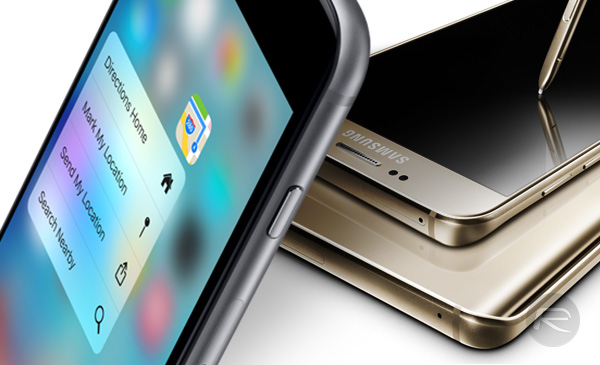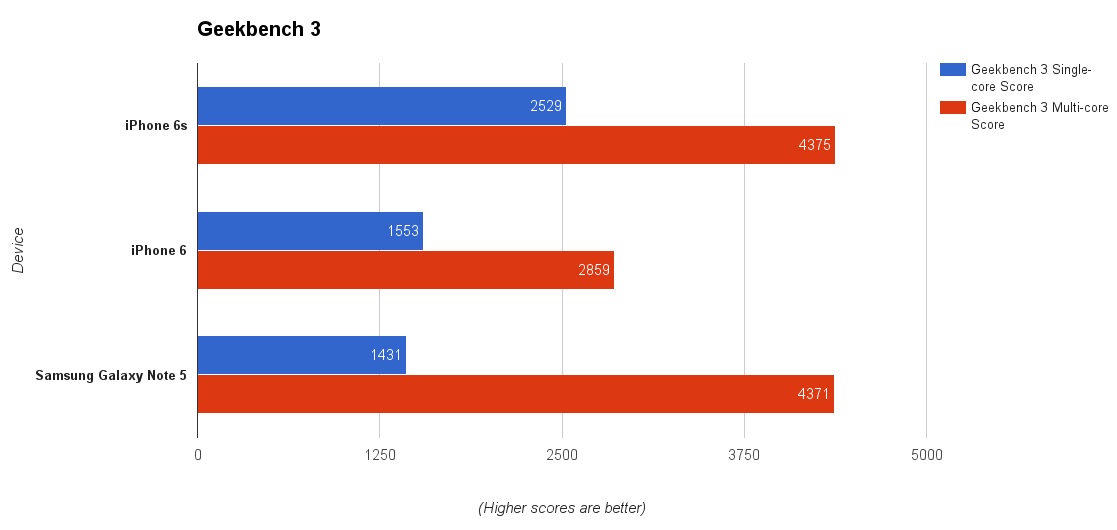Now that iPhone 6s deliveries have started to arrive for those who pre-ordered it, it’s now possible to get some initial Geekbench 3 benchmark test scores that outline the new iPhone’s performance.
The results not only show that the iPhone 6s performance has increased dramatically over last year’s iPhone 6 and iPhone 6 Plus, but also that the dual-core iPhone 6s blows most Android devices out of the water in terms of sheer performance, regardless of how many cores they have.


According to a test carried out by MobileSyrup using Geekbench, Apple’s iPhone 6s managed to notch up a single-core score of 2529, and a multi-core score of 4375 via the Geekbench 3 general-purpose benchmark software. That represents a significant improvement over last year’s hardware, which made it home with a single-core score of 1553 and a multi-core score of 2859. As part of the test, it has been noted that Apple’s new iPhone 6s pretty much sits in a class of its own based purely on single-core performance. And when it comes to multi-core, even though iPhone 6s has two cores instead of four or eight found in most Android devices, it performs on par in multi-core tests.
Here’s a side-by-side comparison of Geekbench single-core and multi-core benchmarks for iPhone 6s (released September 2015), Samsung Galaxy Note 5 (released August 2015) and iPhone 6 (released September 2014):


What’s more interesting, and actually rather impressive, is that Apple’s iPhone 6s also manages to perform on a single-core level pretty much neck-and-neck with this year’s entry level 12-inch Retina MacBook.
Keeping the iPhone 6s scores of 2529 for single-core and 4375 for multi-core in context for comparison, here are some scores from Geekbench for flagship Android devices like Galaxy S6, S6 Edge, Nexus 6 and more:
We’ll have a detailed video comparison of iPhone 6s against some of the top Android flagship smartphones from 2015 soon. Stay tuned.
(via: MobileSyrup)
You may also like to check out:
- Apple iPhone 6s vs Samsung Galaxy S6 [Full Comparison]
- iPhone 6s Plus vs Galaxy Note 5 [Specs And Features Comparison]
You can follow us on Twitter, add us to your circle on Google+ or like our Facebook page to keep yourself updated on all the latest from Microsoft, Google, Apple and the Web.
